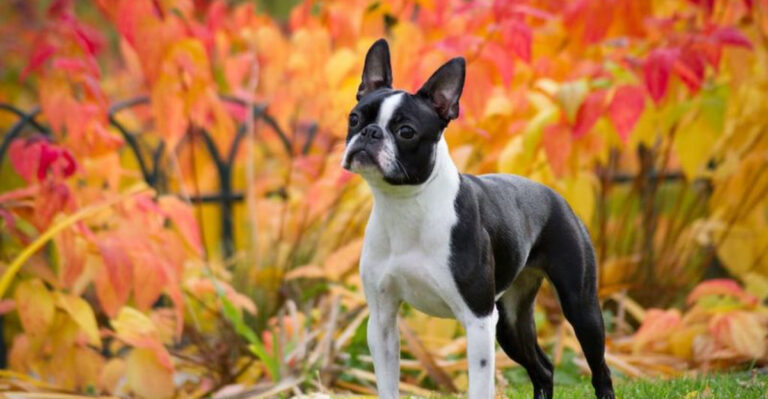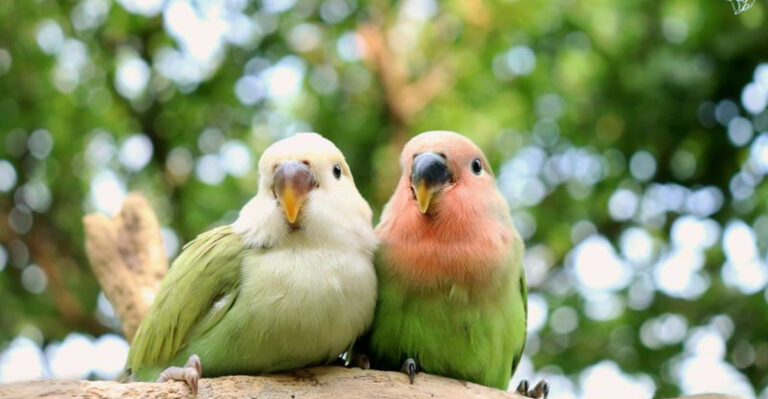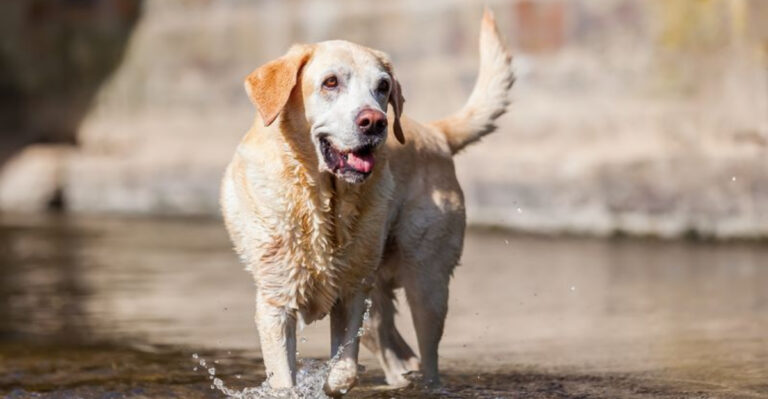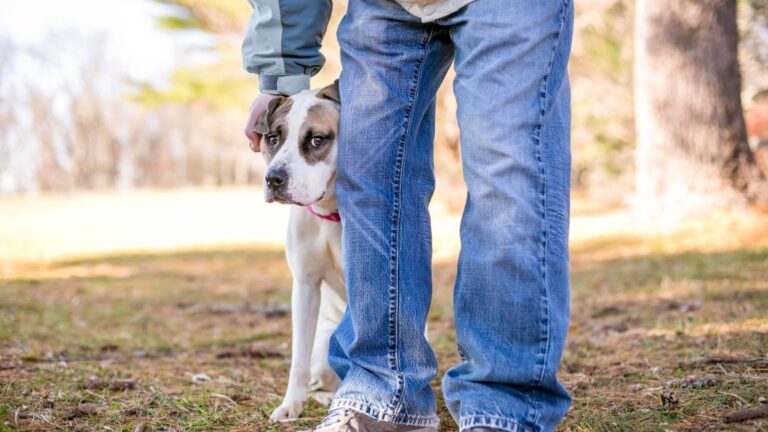22 Foods You Should Never Feed Your Dog
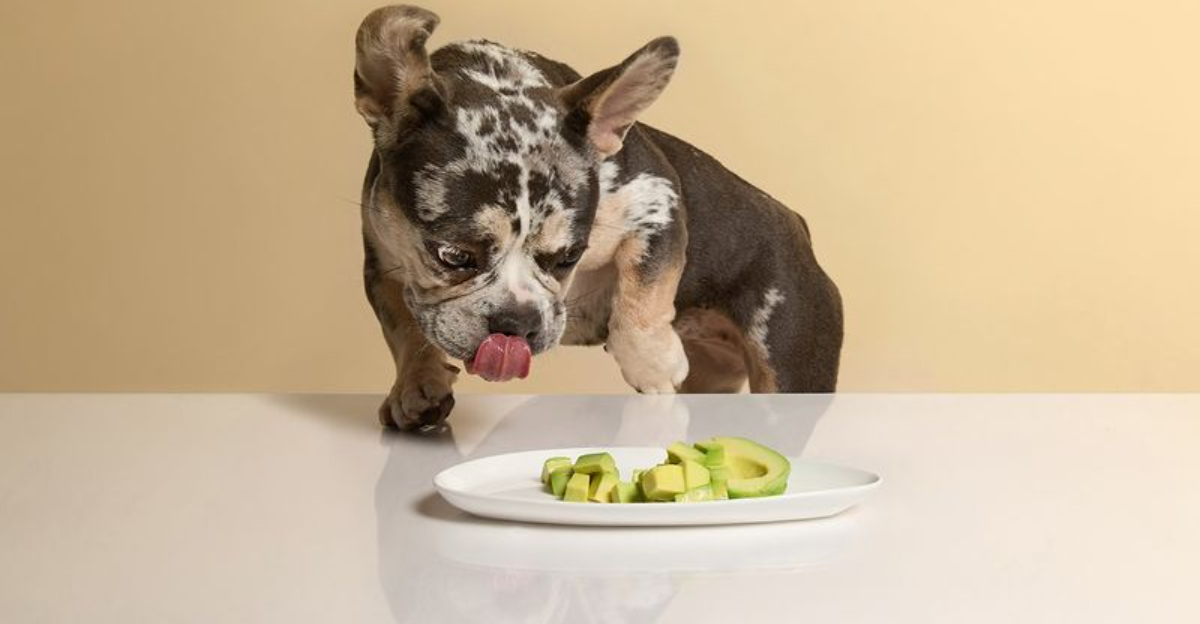
Feeding your dog is more than just providing a meal; it’s about ensuring their safety and well-being. While many human foods are safe, others can be quite dangerous to our canine friends.
Understanding these dangers will help you keep your furry friend healthy and happy.
1. Blue Cheese
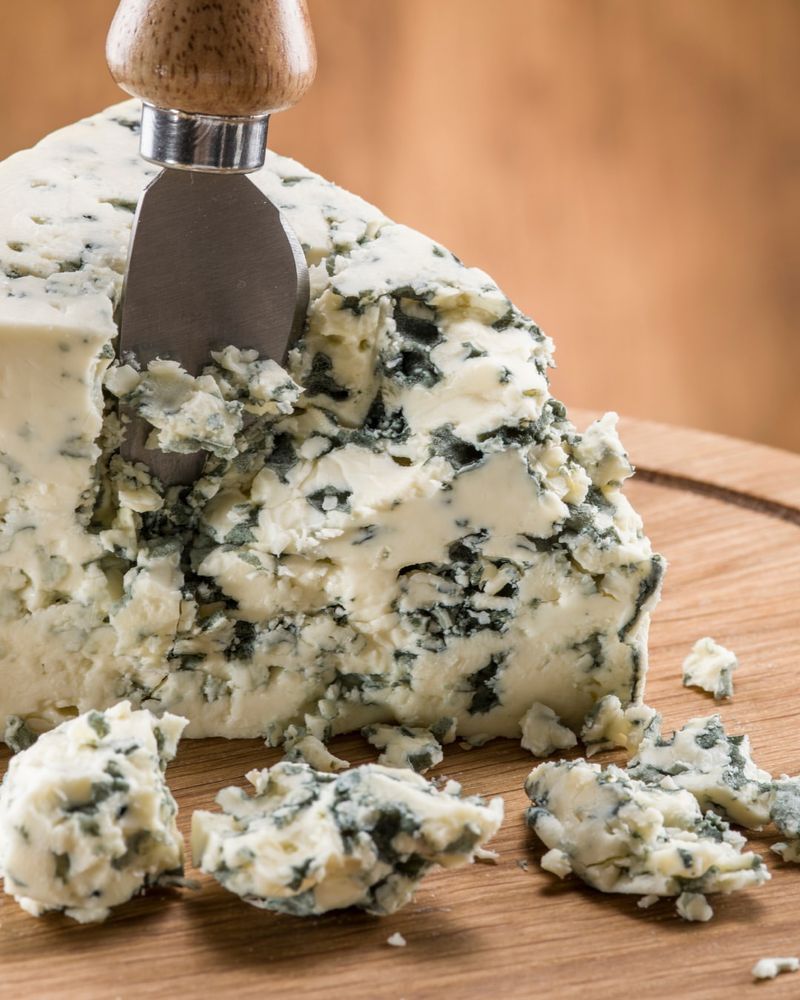
Blue cheese contains roquefortine C, a substance that can cause a variety of symptoms in dogs, including vomiting, diarrhea, and even more severe neurological effects such as seizures if consumed in large quantities.
While small amounts might not harm every dog, it’s safer to avoid giving them blue cheese to prevent any potential health issues.
2. Licorice
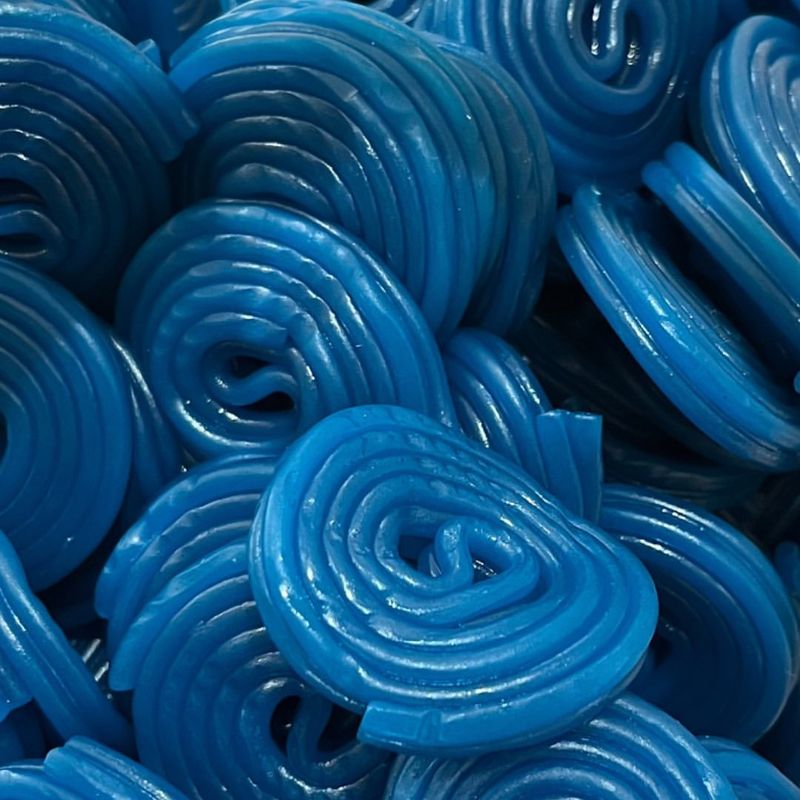
Licorice, particularly the kind containing glycyrrhizin, can be toxic to dogs. It can lead to symptoms like high blood pressure, low potassium levels, and even organ damage if consumed in large amounts.
Some dogs may have a sensitivity to licorice, so it’s best to keep this candy away from them entirely to avoid any adverse reactions.
3. Chocolate

Chocolate contains theobromine, which is toxic to dogs, and can cause serious symptoms such as vomiting, diarrhea, seizures, and even death.
Dark chocolate and baking chocolate contain higher levels of theobromine, making them even more dangerous. It’s important to keep all forms of chocolate, including cocoa powder and chocolate-flavored products, far out of your dog’s reach.
4. Grapes And Raisins
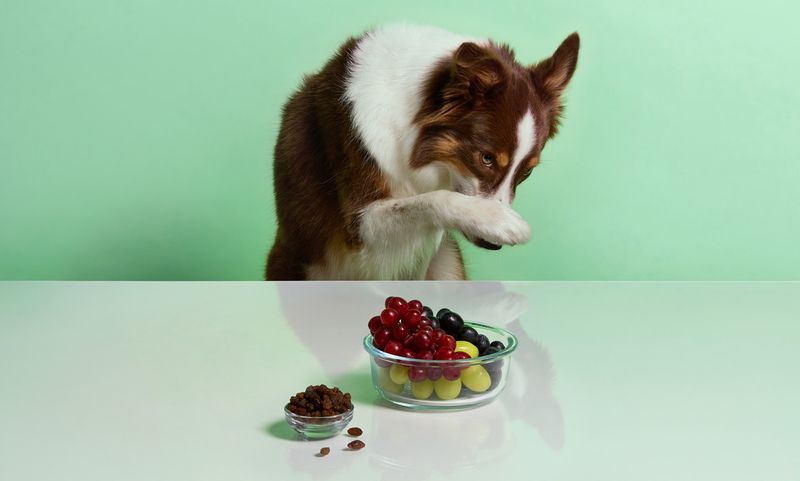
Though the exact cause is unknown, grapes and raisins can cause acute kidney failure in dogs. Even small amounts can lead to symptoms such as vomiting, lethargy, and diarrhea.
It’s best to avoid giving your dog any form of grapes or raisins, as the effects can vary between individual dogs, with some being more sensitive than others.
5. Onions And Garlic
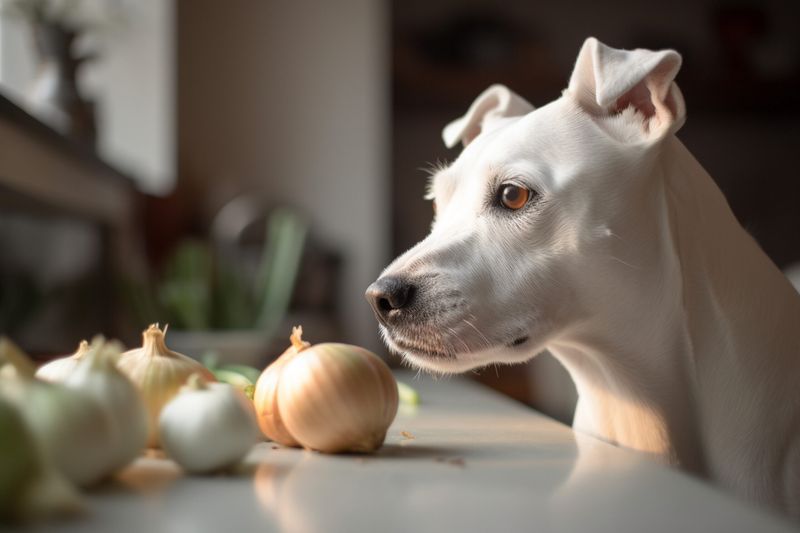
Both onions and garlic contain compounds that can damage a dog’s red blood cells, leading to anemia. Whether raw, cooked, or powdered, they should never be part of a dog’s diet.
Even small amounts of these foods can cause toxicity, and the effects are often cumulative, so regular exposure can be dangerous over time.
6. Avocado
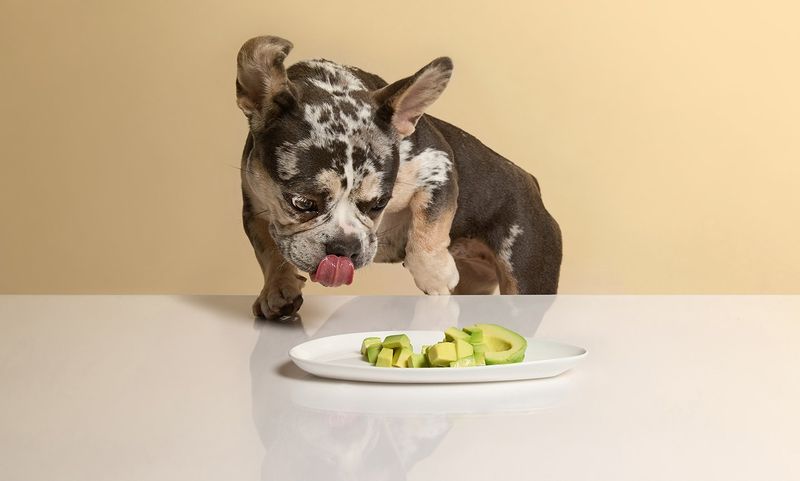
Avocados contain a substance called persin, which is toxic to dogs in large quantities. It can cause symptoms such as vomiting, diarrhea, and abdominal pain.
While the flesh of the avocado is most often the cause, the pit, skin, and leaves of the plant are particularly dangerous. It’s safest to avoid all parts of the avocado when it comes to your dog.
7. Alcohol
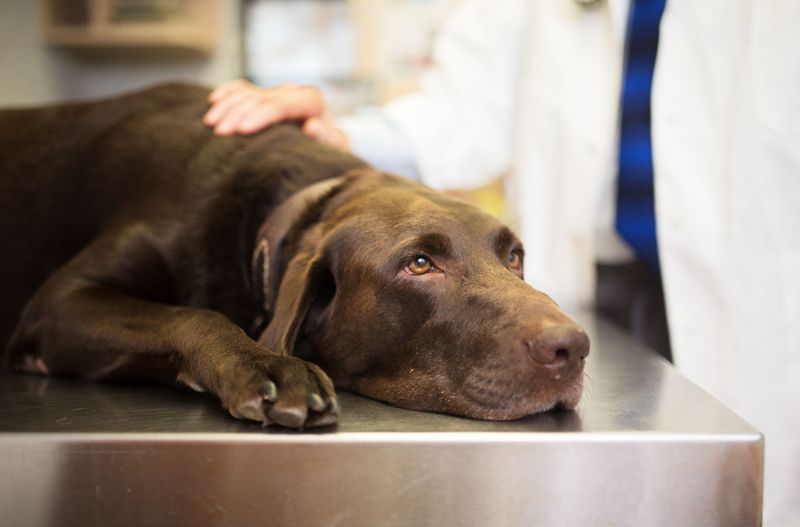
Alcohol has a strong toxic effect on dogs, even in small amounts. Consuming alcohol can lead to symptoms such as vomiting, diarrhea, difficulty breathing, and even coma or death in severe cases.
Dogs are much more sensitive to alcohol than humans, and even a small amount can cause significant harm. It’s critical to keep alcoholic beverages and foods containing alcohol away from pets.
8. Macadamia Nuts
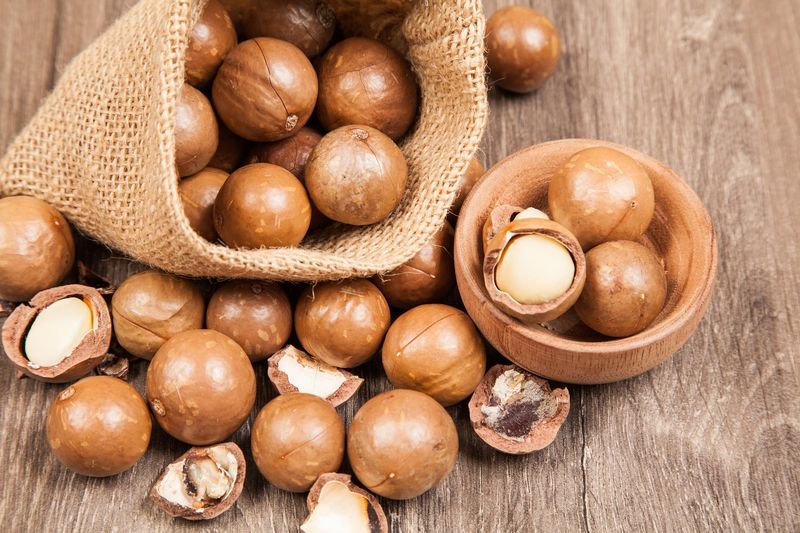
Macadamia nuts are highly toxic to dogs, even in small amounts. Consuming macadamia nuts can lead to symptoms such as vomiting, tremors, hyperthermia, and weakness.
The exact cause of the toxicity is not fully understood, but it’s clear that macadamia nuts are harmful to dogs and should never be given to them.
9. Xylitol
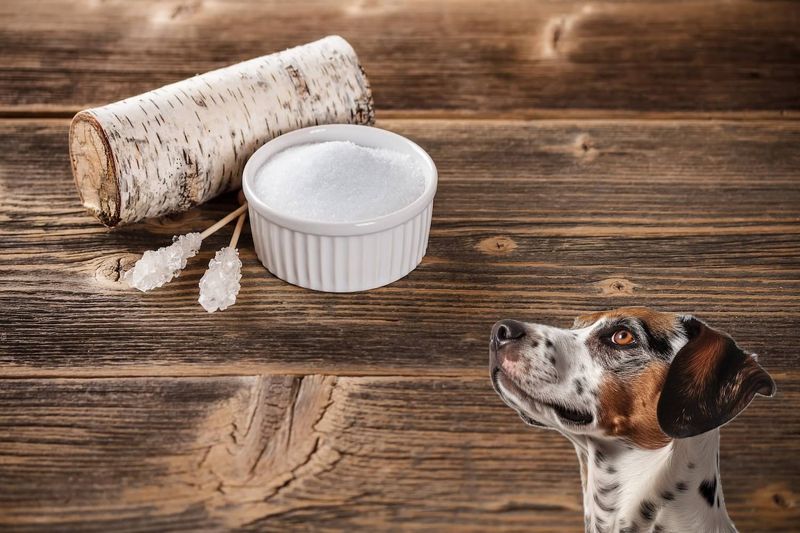
Xylitol is a sugar substitute commonly found in sugar-free gum, candy, and baked goods. When ingested by dogs, it can cause a rapid drop in blood sugar levels, leading to hypoglycemia.
This can result in symptoms such as vomiting, loss of coordination, seizures, and even liver failure. Always check food labels to ensure they do not contain xylitol, especially if you have treats or products containing it in your home.
10. Caffeine
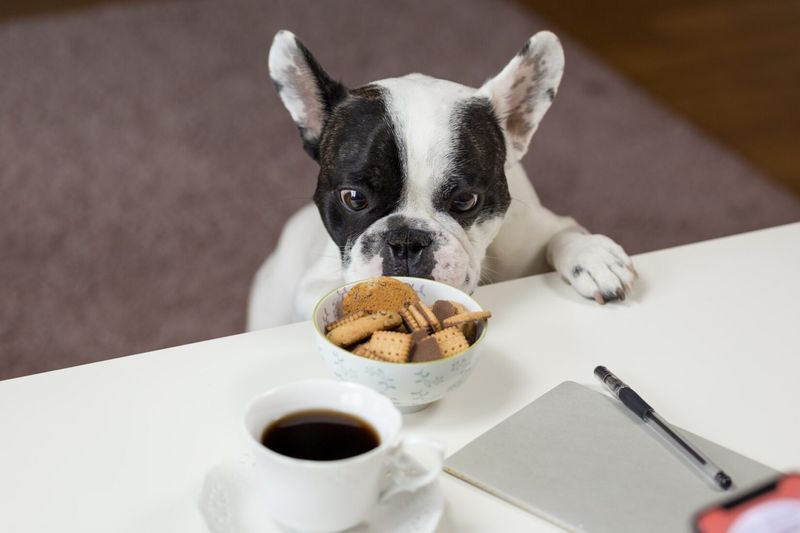
Caffeine, whether in coffee, tea, or energy drinks, is toxic to dogs. It can cause symptoms such as restlessness, rapid breathing, heart palpitations, muscle tremors, and in severe cases, death.
Dogs are more sensitive to caffeine than humans, so it’s important to keep coffee, tea, and any caffeinated products out of their reach.
11. Candies And Sweets
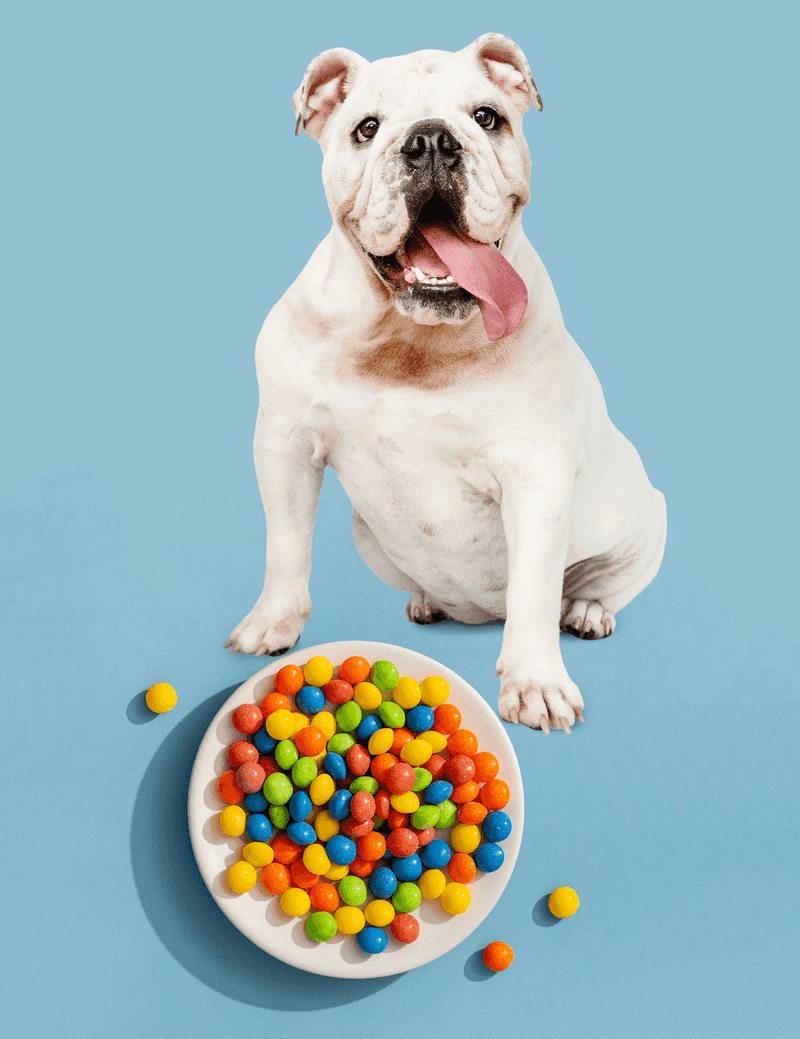
Candies, especially those containing sugar or artificial sweeteners like xylitol, can pose significant health risks to dogs. While sugary sweets might seem harmless, they can lead to obesity, diabetes, and dental problems in dogs.
Additionally, candy wrappers and hard candy can also be a choking hazard, so it’s best to keep all types of candy away from your dog.
12. Raw Eggs
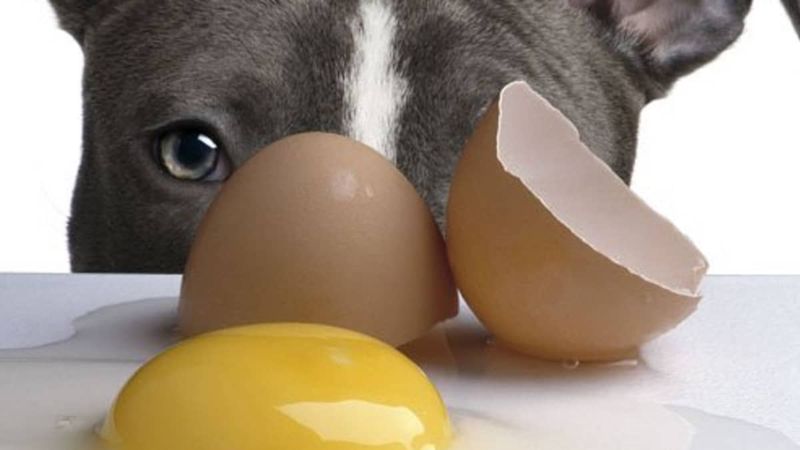
Raw eggs can pose a risk to dogs due to the potential for bacterial infections such as Salmonella.
Consuming raw eggs also contains an enzyme called avidin, which can interfere with the absorption of biotin, leading to skin and coat issues over time. Cooking eggs thoroughly eliminates these risks, but it’s better to avoid raw eggs in your dog’s diet.
13. Salty Snacks
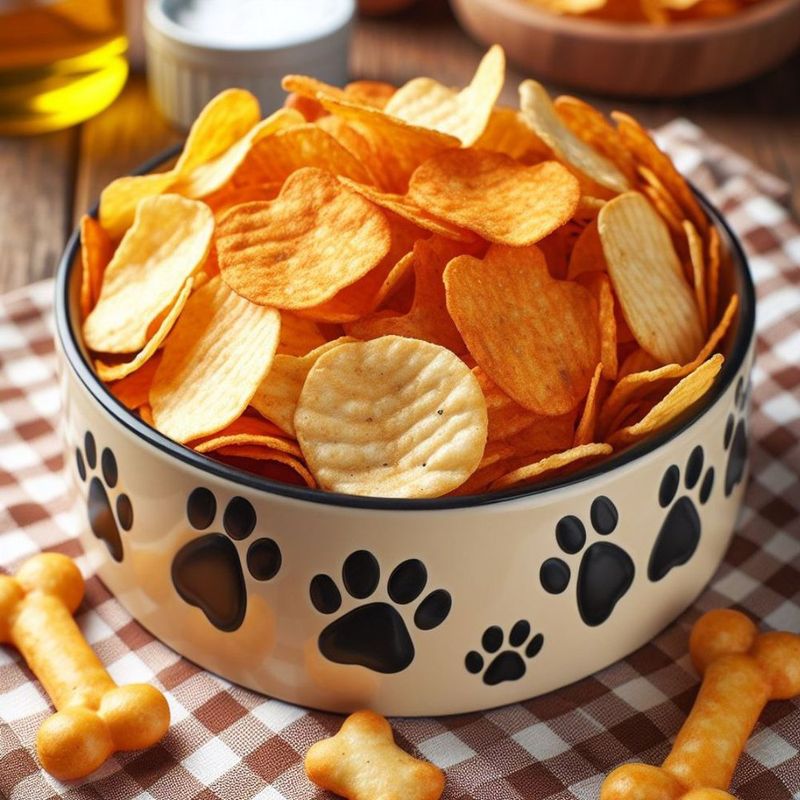
Salty snacks like chips, pretzels, and popcorn can lead to excessive thirst, urination, and even sodium ion poisoning in dogs.
If a dog consumes too much salt, it can cause symptoms like vomiting, diarrhea, tremors, and seizures. It’s best to avoid feeding your dog salty foods, as they can be harmful to their health.
14. Moldy Foods
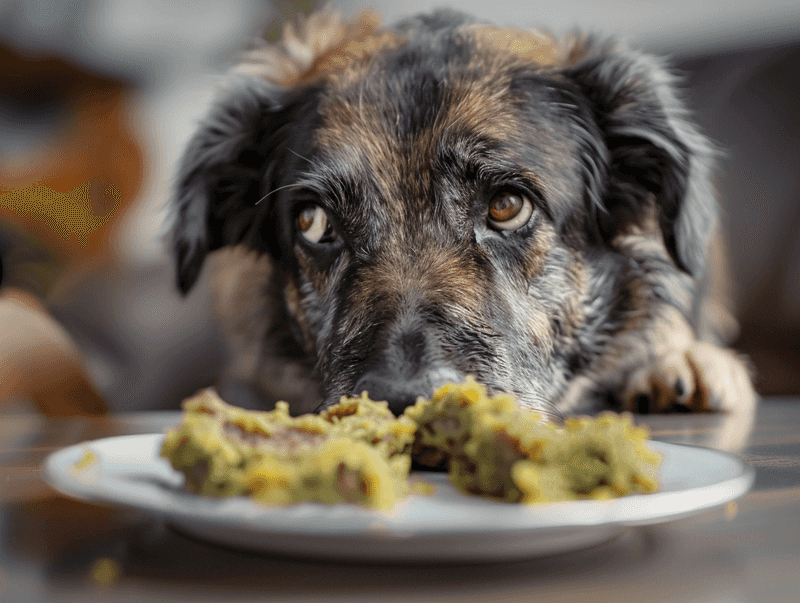
Moldy foods can be toxic to dogs due to the presence of mycotoxins produced by the mold. These toxins can cause symptoms ranging from vomiting and diarrhea to more severe effects like seizures or liver damage.
To keep your dog safe, always discard moldy food and ensure they do not have access to spoiled food or food left out for too long.
15. Fat Trimmings
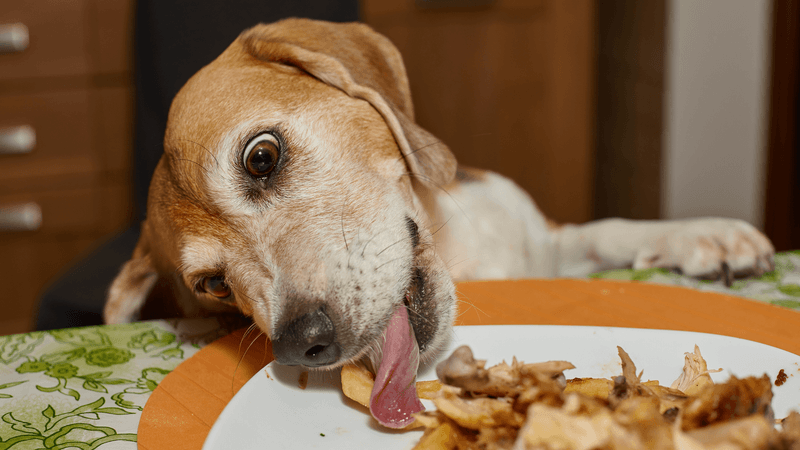
Fat trimmings from meat can cause pancreatitis in dogs, a painful and potentially life-threatening condition. Dogs that consume fatty foods may experience vomiting, diarrhea, and abdominal pain.
Avoid giving your dog fatty scraps, and instead, feed them healthy treats that are specifically made for their dietary needs.
16. Raw Fish
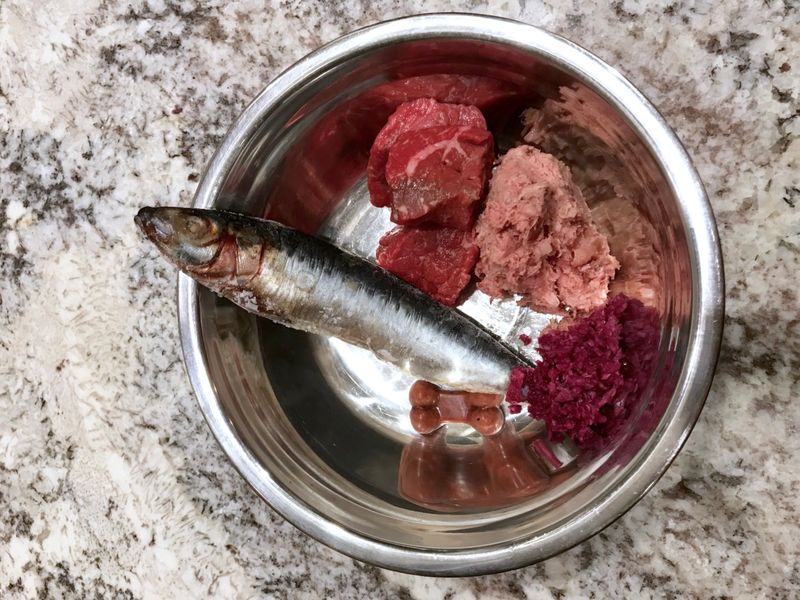
Raw fish, particularly salmon, can carry parasites like Neorickettsia helminthoeca, which can lead to a potentially fatal condition called salmon poisoning disease.
Even if the fish is fresh, the parasites can still pose a danger. Always cook fish thoroughly before giving it to your dog to avoid these health risks.
17. Dairy Products
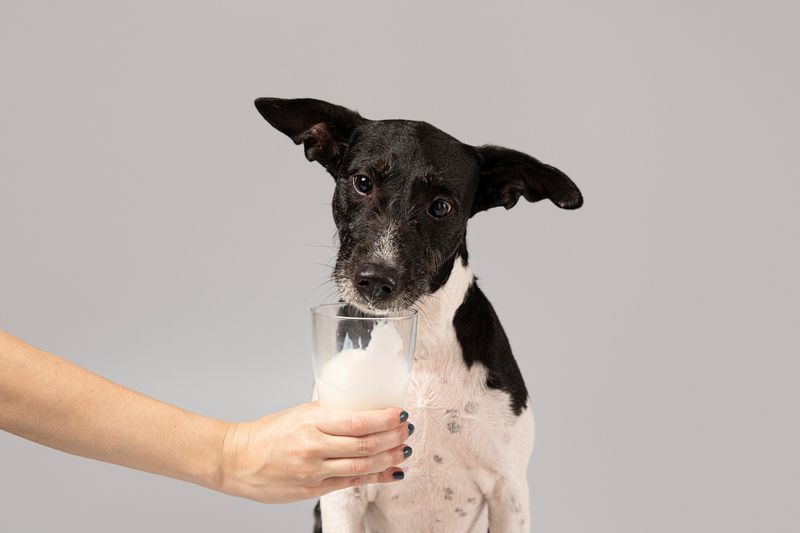
While some dogs can tolerate small amounts of dairy, many dogs are lactose intolerant, meaning they have difficulty digesting lactose.
Consuming dairy can lead to symptoms like bloating, diarrhea, and gas. If you suspect your dog is lactose intolerant, it’s best to avoid giving them dairy products altogether to prevent digestive discomfort.
18. Yeast Dough
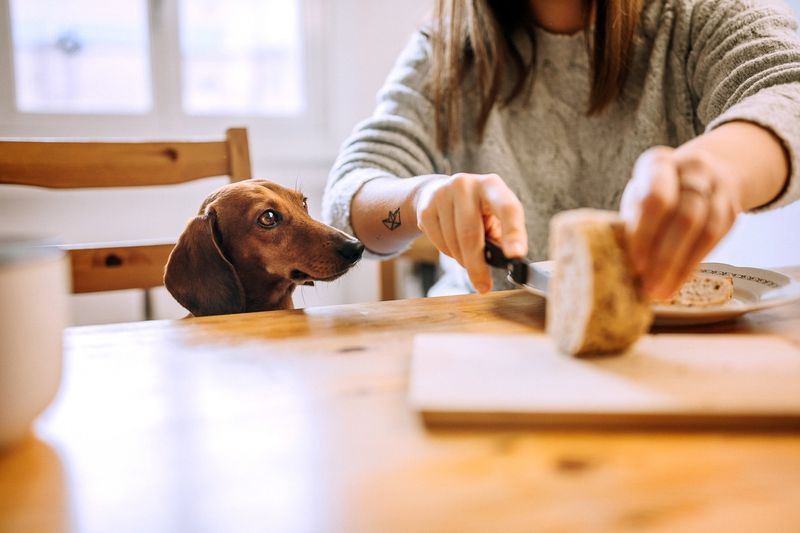
Yeast dough can expand in a dog’s stomach, causing painful bloating and potentially leading to a life-threatening condition called gastric torsion or bloat.
Additionally, the yeast ferments and produces alcohol, which can be toxic to dogs. Keep raw dough, especially that made with yeast, well out of your dog’s reach.
19. Fruit Pits
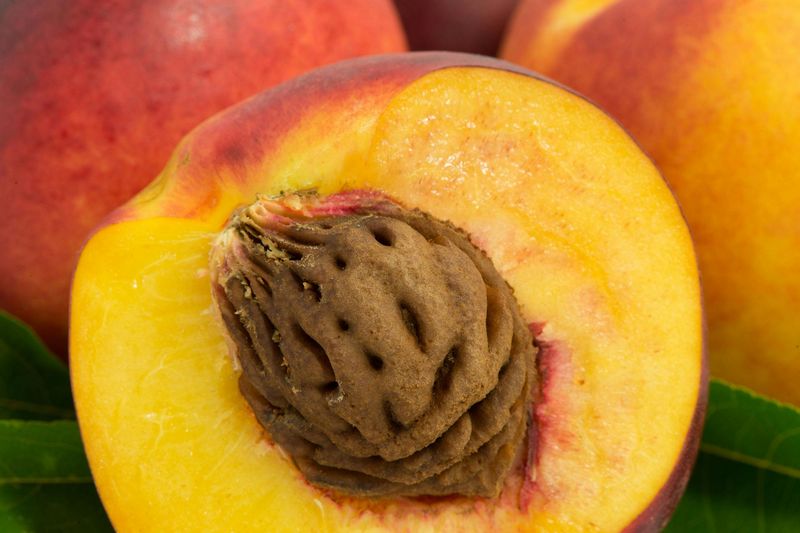
Fruit pits, such as those from peaches, plums, cherries, and apricots, contain cyanide, which is toxic to dogs when consumed in large amounts.
Even if your dog does not eat the pit itself, the sharp edges can cause choking or injury to the digestive tract. It’s best to remove pits from fruits before offering them to your dog.
20. Cooked Bones
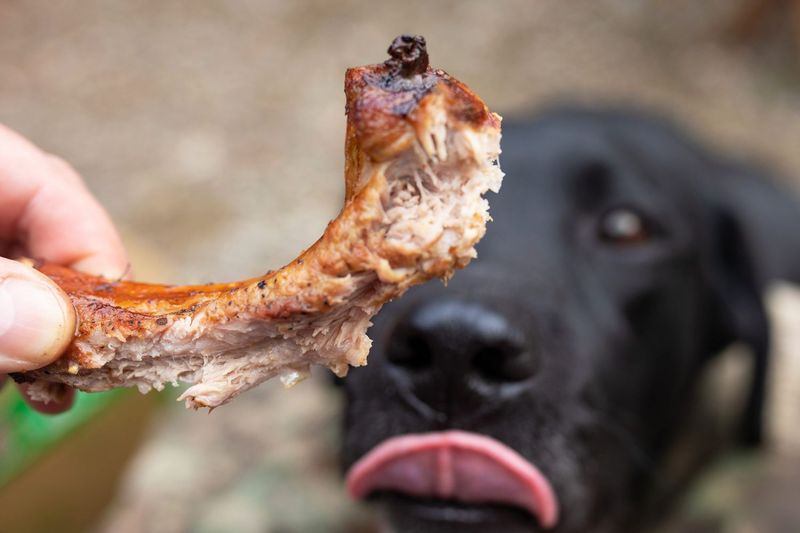
Cooked bones, including those from poultry, can splinter easily, causing damage to your dog’s digestive system. Sharp bone fragments can tear through the stomach and intestines, leading to severe injury or even death.
To keep your dog safe, only offer bones that are specifically designed for canine consumption, and always supervise them while chewing.
21. Citrus Fruits

Citrus fruits like lemons, limes, and oranges can cause gastrointestinal upset in dogs, including vomiting and diarrhea.
While small amounts may not be lethal, the oils and compounds found in citrus fruits can be irritating to your dog’s digestive system. It’s best to avoid feeding your dog citrus fruits, especially in large quantities.
22. Nutmeg
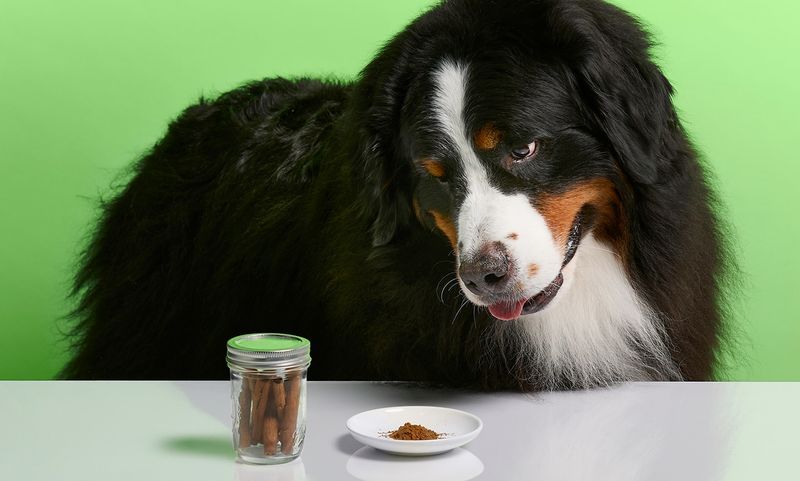
Nutmeg contains myristicin, a compound that can cause hallucinations, seizures, and other neurological effects in dogs.
Even small amounts of nutmeg can be toxic, leading to symptoms such as lethargy, vomiting, and tremors. Avoid using nutmeg in cooking or as a spice when preparing food for your dog to ensure their safety.

